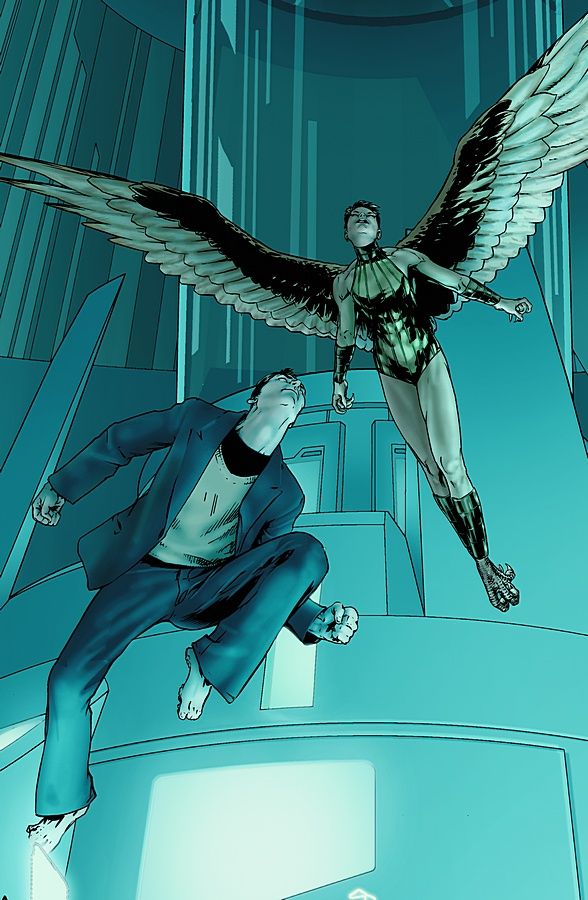In October 2006, "The Authority" #1 by Grant Morrison and Gene Ha hit shelves to mixed reactions, followed up in March 2007 with a second issue to continued mix reactions, and, then, nothing. So, here we are three years after the release of the first issue and the third has finally arrived in the form of "The Authority: The Lost Year" where Keith Giffen is picking up where Morrison left off, using Morrison's ideas to an unknown extent, and finishing the story. Judging by this issue, maybe they should have just let this drop like Morrison and Jim Lee's "Wildcats" relaunch which only shipped a single issue in 2006.
It's not that this comic is bad, it's that it's not great, not even good. It's an average, mediocre superhero comic that would barely warrant publication on its own merits let alone as the continuation of a story that began over three years ago and built up a mystique around it. "The Lost Year" doesn't just have to compete with every other comic on the shelf, it has to compete with the imagined quality of Morrison and Ha's run had it not died after two issues, a task that would be difficult for most comics, let alone a tepid issue like this one. Is that fair? Perhaps not, but it's the truth.
This issue picks up where the last left off: the Authority trapped seemingly on our Earth, Apollo shot down over Afghanistan, and the Midnighter on scene to rescue him, perhaps continuing the confrontation. He doesn't, but only after we see what would have happened thanks to his ability to see every possible outcome of his actions and that fighting against the soldiers that shot Apollo down would lead to no good. After that, the group sets about finding a way out of this reality as the Doctor uses Ken, a man from this Earth, to learn about the world.
For most of the issue, the plot isn't the problem, it's the actual execution, which lacks the stylistic flourishes and flairs of Morrison's writing. Giffen is a solid writer, competent in his craft, but simple confidence isn't necessarily a positive when juxtaposed with one of the industry's best scribes. Again, it may not be fair to compare Giffen's writing to that of Morrison, but he is picking up where Morrison left off and using Morrison's ideas, making it obvious where and how he fails to showcase them. The best example in this issue is the theory that the universe the Authority is trapped in is actually the baby universe that was caged and powering the Carrier. A grand, interesting idea rendered almost boring by its portrayal here as all the characters can do is stand around and marvel at it, much like we're meant to. Not that that matters really, because the plot fails when it shoves that idea aside for a much less interesting one at the end of the issue.
The issue's one big positive may have been Darick Robertson's art had it not been given to Trevor Scott to ink as he does everything in his power, it seems, to reduce Robertson's luscious line work to chicken scratching lacking in all aesthetic beauty. Some pages come through relatively unscathed as Robertson's art is strong enough to survive such inking, but this is one of the worst-looking comics to bear Robertson's name is years.
"The Authority: The Lost Year" #3 is, as I said earlier, not a bad comic, it's a mediocre one that would normally fade into the background with the rest of the mediocre comics that litter the racks had it not such a storied history and the potential of an unrealized alternate run to compete with. Perhaps the series will recover as time goes on and it distances itself from what might have been, and Keith Giffen distances himself from direct comparisons to Grant Morrison, but this issue doesn't inspire confidence.

